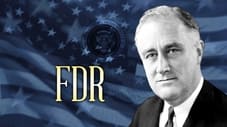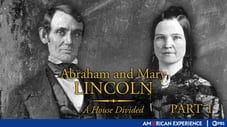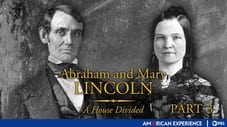David Grubin — Writer
Episodes 10
The Great Air Race of 1924
The first around-the-world air race, sponsored by the Army Air Service to prove that the airplane had a commercial future, was the ultimate test of man and machine. Four pilots took off in single-engine, open-cockpit planes; 175 days later, two remaining pilots would land where they'd begun, in Seattle.
Read MoreFDR (2): Fear Itself (1922-1933)
In this second episode, the subject is FDR's courageous fight with polio. With his wife Eleanor Roosevelt at his side, FDR, wins the Democratic nomination for president. He takes office at the beginning of the Great Depression. Exhorting the nation to keep the faith, FDR utters his famous words: "The only thing we have to fear is fear itself."
Read MoreFDR (1): The Center of the World (1882-1921)
Polio at age 39, president at age 50. Explore the public and private life of a determined man who steered the United States through two monumental crises: the Depression and World War II. FDR served as president longer than any other, and his legacy still shapes our understanding of the role of government and the presidency. A film by award winning filmmaker David Grubin.
This first episode looks at the early life of FDR. Born into a wealthy family, there was little about his youth that would suggest the giant of history that he would become. His entry into state politics and a significant meeting with a woman named Eleanor would change his life and the course of a nation.
Read MoreAbraham and Mary Lincoln: A House Divided, Part I
Part 1 and 2 of a six-part chronicle of the Abraham Lincoln-Mary Todd relationship begins with their childhoods and courtship. He, of course, was born into poverty; she, however, grew up in luxury, the daughter of a Kentucky banker and slave owner. (Several of her brothers would die fighting for the South in the Civil War.) While he was something of a rube when they met, she was the opposite, polished and refined. Yet they shared something in common: a love of politics.
The marriage of Abraham and Mary Todd Lincoln proves to be a tempestuous affair accented by her temper, his depression and their political ambitions. Included: his elections to the U.S. House of Representatives and, later, the presidency.
Read MoreAbraham and Mary Lincoln: A House Divided, Part II
When the Lincolns arrive in Washington, D.C., in 1861, the president-elect is deemed untested and is mistrusted; Mary, meanwhile, is suspected of being a Confederate sympathizer due to being the daughter of a Southern slave owner. As Abraham deals with the national tragedy of the Civil War, the couple also face a tragedy much closer to home: the 1862 death of their son Willie. The aftermath of son Willie's death finds Mary turning to spiritualists for comfort and, perhaps, slipping from sanity. President Lincoln, however, has another matter larger than his own grief that demands attention---the war. Included: the step he took that changed the nature of the conflict, the Emancipation Proclamation, which he issued on Jan. 1, 1863.
Read MoreAbraham and Mary Lincoln: A House Divided, Part III
The third part recalls 1863, when opposition to the Civil War spread among Northerners: some see the high level of casualties as unacceptable, while others resent fighting to free black slaves. Abraham Lincoln, understandably, becomes anxious. Mary Todd Lincoln, meanwhile, copes by spending money compulsively, and falls into debt as a result. Conclusion. The final 16 months of the Civil War are charted, including the battle at Gettysburg and Abraham Lincoln's battlefield dedication and, just days after the South's surrender at Appomattox, his assassination. Included: Abraham's dedication to bringing the South into the Union; Mary's private wish for revenge.
Read MoreAbraham and Mary Lincoln: A House Divided, Part IV
Tormented by her grief and losing grip on sanity, Mary Lincoln turns to spiritualists for comfort. Though bowed down with sorrow, her husband never loses sight of the tragedy consuming the nation and issues the Emancipation Proclamation.
Read MoreAbraham and Mary Lincoln: A House Divided, Part V
As 1863 begins, Northerners resent fighting to free black slaves; others are furious with Abraham Lincoln for the devastating Union casualties. Mary Lincoln, worried about her husband, spends money compulsively.
Read MoreAbraham and Mary Lincoln: A House Divided, Part VI
Following the Union victory at Gettysburg, and the surrender at Appomattox, the president tells Mary Lincoln they can find some happiness again. Just days later, he is shot to death.
Read More




